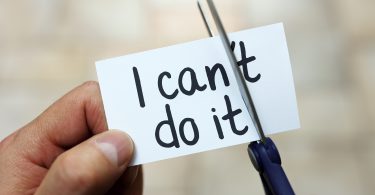As a player, you have probably been told that confidence is an important part of success at every level. Feeling confident as a player or a team comes from having “self-efficacy.” And there is a good chance that self-efficacy will make or break your season, whether you know it or not. So what is it, exactly?
In simple terms, self-efficacy refers to your belief in your ability to do something. It is your belief that you have the power to influence important outcomes and create the results you want. For example, if you believe you can hit 10 homeruns this year on your varsity team, you have self-efficacy when it comes to hitting home runs.
In baseball, there is nothing more powerful than believing in your abilities to execute, to make a play, to achieve goals, and to handle adversity. Your belief in yourself and your abilities is what will motivate you through the ups and downs, drive you to work harder and smarter, and ultimately push you to stay focused on what you started out to achieve. Success is born through self-efficacy. But not everyone has self-efficacy, and some players who get it, lose it as soon as things don’t go their way. As legendary University of Texas Coach Augie Garrido explains it, “The demon is fear, the warrior is confidence and they battle it out inside you…fear is a stronger power than confidence, confidence has to fight like mad to win the battle against fear.”
So, how do you develop or increase self-efficacy? How can you work on your self-efficacy as you prepare for another new season? Sports scientists have looked into this question and here are 4 factors that can improve self-efficacy. You can work on these factors yourself, or even better, work on them with your coach or teammates.
1. Successful performance.
Of course, this is a no-brainer. Being successful at anything is going to build confidence and self-efficacy. But what if you want to believe you can hit a home run at the varsity level but you’ve never hit one? The best way to gain self-efficacy for something you haven’t done yet is to break the task down into steps that you CAN do and work on mastering the steps. Can you master a swing that will result in more power? Can you improve your strike-zone discipline and take aggressive swings on pitches in parts of the strike-zone where quality contact will maximize your power? Can you improve your approach? Master the steps and you’ll gain the confidence you need to keep going until your goals are achieved.
2. Watching others achieve your goals.
Sure, it doesn’t seem like watching someone else hit home runs can help you believe that you can. But what if the guy you are watching is on your team, about your size, and only a few months older than you are? By watching others hit home runs, really watching and paying attention to the little things they do to prepare, to focus, and to finish, you can learn to break down the steps and find new things to try for yourself.
3. Self-talk
When things don’t go well, some players will start thinking negative thoughts like they should give up or that they will never be able to achieve something. This negative “self-talk” is never good. While you don’t want to lie to yourself, you want to stay focused on the steps you are trying to master. If you strike out chasing a bad pitch but you took good swings, use “self-talk” to tell yourself that you’ve done a good job with the swing, now you just need to focus on getting a better pitch. Next at bat, you can repeat the word “location” to yourself as you warm-up on deck or before you step into the box to keep the self-talk positive.
4. Mental and emotional preparation.
Most players will do something before a game to “psych” themselves up. They listen to music, visualize winning the game, use a team chant, or warm up in a very specific way. Getting energized by a ritual or routine is another way to build self-efficacy because if done right and you “feel” ready for the game, you are more likely to believe that you can achieve your goals than if you just walked on the field. Visualization can play an incredibly important role. Some studies have show that visualizing success or mentally practicing a task can be just as powerful as practicing that task in real life. In addition to training your physical skills, training your mental game is important as well. The more real you can make your visualization, the better. If you can visualize it, you can believe it, and if you can believe it, you can achieve it.
As you start your season, understand that you have the choice to believe in yourself. By breaking down your goals and mastering the steps to achieve them, watching successful players, keeping your “self-talk” positive, and preparing for your games with physical and mental training, you can choose to be a confident player who is ready for the next level. It all starts with you. As my little league coach, Fred Wood, always said, “Dare to be great!” You never know what might happen.







